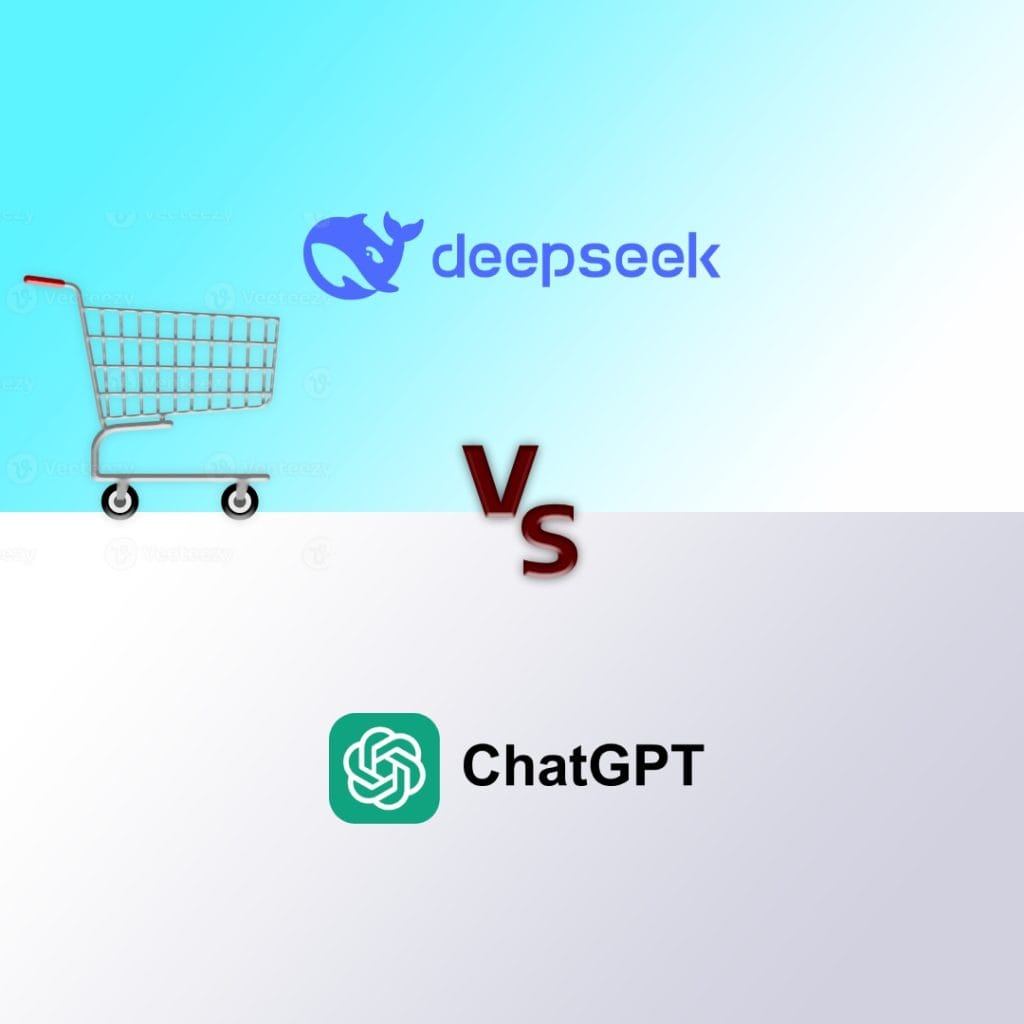
Many industries have started leveraging Generative AI with a good adoption rate. The demand for Generative AI technology is also growing. In 2022, the global market of Generative AI in e-commerce was valued at $624.52 billion and is expected to reach a valuation of $2,530 billion by 2032.
In 2025, we can expect Gen AI to drive multiple facets of e-commerce, from content creation to preventing fraud. It has also been analyzed that Generative AI brings efficiency and reduces costs by approximately 30% by bringing automation into multiple business processes.
That’s why we have presented this article, which entails the various use cases of Generative AI in E-commerce in 2025. Let’s begin with the basics.
What is Generative AI?

We just understood the concept of AI and its potential & use cases, and then suddenly, we got Generative AI in our platter. It is a type of artificial intelligence technology that is capable of producing different types of content, including text, imagery, audio, and synthetic data. With advances in technology, Generative AI is now capable of multiple other things, including creating high-quality text, presentations, graphics, audio, video, and others.
Generative AI in E-commerce: Value-Driven Use Cases
You can’t underestimate the business impact of big data. The more data e-commerce stores have, the more they can derive meaning from the customers, their buying habits, choices, and others. Plus, there are various touchpoints in e-commerce stores to get data like search histories, product reviews, product descriptions, browsing history, and much more. All this can be analyzed and utilized to improve online sales with Generative AI. But Gen AI is not limited to just this and can offer more. Here are the value-driven use cases:
1. Product Descriptions and Content Generation:
An enterprise-level e-commerce stores always feel like an endless journey of a digital corridor filled with countless products. That’s where concise yet meaningful product descriptions are needed. Traditionally, content writers have had to do research, write appealing descriptions, and include required SEO keywords. Although effective, this approach has sometimes led to inconsistent product descriptions and loss of sales and customers.
The recent progress in generative AI allows retailers to standardize descriptions across various sellers and marketplaces. Content creators can now use generative AI tools like ChatGPT to create product descriptions that align with brand tone and language with grammar accuracy.
The technology behind this is Natural Language Generation (NLG) algorithms, which assess product data and generate relevant descriptions for a better customer experience. For example, a tool could examine a product’s qualities, benefits, and specifications before producing an interesting product description that increases consumer interaction.
2. Product Images and Ads Generation:
There is a subcategory of generative AI called Generative Adversarial Networks (GANs), which has gained momentum in the e-commerce industry due to its ability to create product images. GANs, once trained on a dataset of existing product images, are capable of creating new and realistic product visuals to be used in e-commerce marketing activities. It will not just reduce the time required to create e-commerce ads, but there will be expenses in product photography as well.
Product images play a pivotal role in product detail pages (PDPs), and each image requires a team of models, photographers, designers, editors, and creative personnel for the photoshoot. Here, Gen AI will allow merchants to generate images through textual inputs and historical image data.
Adobe Firefly is a popular generative image tool that allows creators to bring their ideas to life with greater efficiency and without limitations. Users can generate lifelike images as per their requirements.
3. Product Recommendations:
In the e-commerce industry, personalization plays an important role in gaining an edge over competitors. Custom product recommendations to individualized content, discounts, and deals will help customers relish the personalized experience. With Generative AI, you get a plethora of opportunities to recommend products and services to customers based on various factors like order history, search history, historical data, browsing behavior, wishlist items, and others.
Generative AI helps brands in curating exceptionally personalized buying experiences, thus increasing sales and customer retention. The Gen AI-based product recommendations foster customer loyalty and bolstering.
4. Chatbots for Customer Support:
The Gen AI-powered Chatbots are gaining traction in e-commerce as they can work 24 x 7 in customer support and assistance without any compromise in customer service quality. The Gen AI-powered chatbots can handle customer inquiries, provide all necessary details, and address other issues. These Gen AI chatbots provide human-like interaction to customers. Understanding natural language and context facilitates seamless interactions.
Also, the chatbots require less time to resolve queries, so it will augment the customer experience while reducing operational expenses for businesses.
Generative AI is not just limited to customer enquiring chatbots but also plays an instrumental role in virtual shopping. The virtual shopping assistants accompany customers on their online shopping expeditions.
Virtual shopping assistants leverage machine learning algorithms to understand the desires of customers and accordingly suggest suitable products. Customers can explore newer products through virtual shopping assistants as they offer tailored recommendations, resulting in higher sales and engagement.
5. New Product Design:
To survive in the market, it is essential to release newer offerings, but what to offer always remains a difficult question. In this case, the online retailers can use generative AI. They can harness the power of generative AI to utilize Generative Adversarial Networks (GANs) to design new innovative products as per market demand.
With this, the product development process will be shortened, and there will be better products. Thus, the brands can maintain a competitive edge and cater to customer demand for fresh and improved merchandise.
The e-commerce platforms can implement Gen AI for customizable product designs. Gen AI has data on customer history, wishlists, etc., so it understands customer needs better. This knowledge will help in designing the products as per individual users’ specific needs and aesthetic preferences.
6. Customer Engagement:
In today’s time, you can’t expect a single marketing tactic or campaign to work for every customer. Modern customers are well aware of their value and won’t hesitate to move to your competitors if you aren’t serving them well. That’s why targeted marketing campaigns are required.
By segmenting customers based on several factors like geographic location, gender, age, etc., you can tailor marketing campaigns tailored to specific interests. With Gen AI, you can create promotional messages, e-mails, creative push notification messages, and much more. This approach enhances the user experience and contributes to customer retention and loyalty.
7. Improving Inventory and Supply Chain Management:
With Gen AI, you can analyze historical sales data, customer behavioral patterns, and market trends. This will help in predicting demand and optimize inventory levels. A LangChain-integrated system, when combined with an LLM, may delve into your catalog data, providing a complete study of product demand, inventory availability, and upcoming patterns.
This helps firms save storage expenses, prevent supply shortages, and ensure the availability of popular products. Enhanced inventory management leads to increased customer satisfaction and operational efficiency.
8. Fraud Detection and Prevention:
After BFSI, the e-commerce industry has always been on target and faces significant risks from fraudulent activities. However, with Gen AI, it is possible to identify and reduce fraud risks. AI algorithms can detect anomalies and flag potentially fraudulent transactions in real-time by analyzing extensive datasets and learning from historical patterns.
It helps the e-commerce stores to protect themselves and their customers from any data breach, hack, or fraudulent activity.
9. Search and Discovery:
Search is generally the first feature by which the user starts interacting with your e-commerce store. By integrating AI into searching mechanisms, you can elevate the user experience by a significant margin. Gen AI is highly capable of generating pertinent search suggestions, improving user engagement, and seamlessly guiding customers towards their desired products.
Furthermore, the AI-powered search functionality will provide accurate and diverse search results to improve the overall search process. As a result, visitors face a streamlined and efficient search mechanism, which contributes to a better purchasing experience and more happiness in the e-commerce landscape.
10. Customer Feedback Analysis:
Generative AI has shown itself instrumental in scrutinizing customer feedback across diverse sources, including reviews and social media. It examines customer feedback for different parameters like prevalent themes, sentiments, and product attributes customers highlight.
By retrieving and analyzing this plethora of data, generative AI provides useful insights that organizations can use to improve products and refine marketing campaigns. A detailed understanding of customer feelings and preferences enables businesses to make educated decisions, address problems, and change their strategy to meet customer expectations.
Wrapping Up:
In this article, we have gone through various cases of the use of Generative AI in e-commerce stores. In today’s time, you are lagging behind if you are running an e-commerce store with no AI capabilities. At Ceymox Technologies, the best e-commerce development company, we have expertise in building AI functionalities in e-commerce stores.
We build e-commerce stores from scratch with extensive AI features and functionalities to deliver unmatchable customer experience. Let us know your requirements.
KC Jagadeep, CEO of Ceymox, a leading Magento Development Agency based in India. KC is a passionate entrepreneur, Magento enthusiast, and advocate for open-source solutions, dedicated to enhancing the landscape of online commerce, particularly within the realm of Magento.Driven by the pursuit of creating and executing successful strategies and platforms for digital commerce, KC brings over 12 years of industry experience to the table. His mission is simple: to empower corporate eCommerce clients with effective digital commerce solutions and modern marketing practices, ultimately boosting profitability.As an entrepreneur with a proven track record in information technology and eCommerce services (including Magento and WooCommerce), KC possesses expertise in operations management, startups, various eCommerce platforms, and business process outsourcing.
View All Articles









